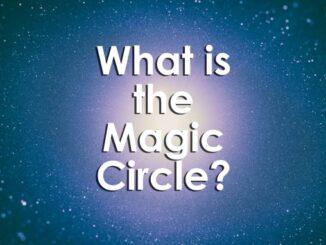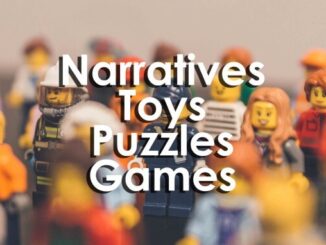
I believe that we now live in a Golden Age of RPG development and innovation. Among all the game genres, RPG has always been notable for the way it enables players to become designers and create their own experiences. Although many of the more recent RPGs created by indie designers bear little resemblance to D&D, they definitely continue that tradition. Indeed some them take it even further. Where D&D and similar allow you to create games which you can then play, many indie games blur the line between player and character while play is actually occurring, and some even do that with the line between player and designer.
There are many names for the types of games which are now being produced by indie designers, but interestingly these terms are often rejected by the people who are doing this work. Many of the individuals and communities creating these games identify themselves as marginalised, and dislike being labelled by others, even in terms of the work they produce, so you may find that the when you explore the games listed below, they will be categorised differently than they are here.
Many of the below continue the idea of simplifying RPG systems and making the games more accessible to players, quicker to start and more portable in terms of material needed to play.

Powered by the Apocalypse (PbTA)
In 2010 D. Vincent Baker and Meguey Baker published the critically acclaimed, award-winning, Apocalypse World (AW), and created their own games system especially for it. Games which use this system are known as games Powered by the Apocalypse or PbtA. The game itself is set in a dystopian, post-apocalyptic world, but games created using the engine can have any setting, and the traits of characters can be created as appropriate to the context of the game. In AW these traits are Cool, Hard, Hot, Sharp and Weird. Characters are run from ‘Playbooks’ which list Traits and Moves which are triggered when the character encounters specific situations.
PbtA games are hard to define, not least because the Baker’s define PbtA as a policy rather than anything else.
“PbtA isn’t the name of a category of games, a set of games’ features, or the thrust of any games’ design. It’s the name of Meg’s and my policy concerning others’ use of our intellectual property and creative work. […] Again, ‘Powered by the Apocalypse’ isn’t the name of a kind of game, set of game elements, or even the core design thrust of a coherent movement. (Ha! This last, the least so.) Its use in a game’s trade dress signifies ONLY that the game was inspired by Apocalypse World in a way that the designer considers significant, and that it follows our policy [with respect to] others’ use of our creative work”.
Notable games which could be described as PbtA are Farflung, a far-future set game inspired by Hitchhikers’ Guide and Barbarella and similar, Monsterhearts, a game about teenage monsters by Avery Alder and Root RPG, based on the boardgame, casting the creatures as outsider vagabonds.
Root RPG is available on Amazon

‘No Dice, No Masters
This reluctance to ‘label’ games and their method of creation is common across other game ‘systems’ or ‘engines’ which are similarly nebulous. It is tempting to say that these defy definition but that you will know them when you see them. This applies to the ‘No Dice, No Masters’ framework, first attributed to Avery Alder in their game ‘Dream Askew’. You can read this game, and its companion ‘Dream Apart’, created by Avery Alder and Benjamin Rosenbaum, to give you an idea of what a No Dice, No Masters game looks like, but searching the Internet to find a ‘rulebook’ or similar that you could get if you were searching for GURPS, will most likely just turn up more questions from folk who are also seeking the definitive framework.
As you would expect, these games do not feature dice rolling, and they play as collaborative storytelling among all players rather than having a Gamemaster or similar guiding others through an experience they have already created. Like PbtA games they feature playbooks which guide players through how to play a character. Their narratives deal with the struggles of the marginalised, oppressed and dispossessed, and so these games are sometimes also categorised as ‘Belonging Outside Belonging’.
There are several individuals who turn up again and again across all the related genres of indie games, as prolific and talented creators. Avery Alder is one of those and so is Jay Dragon of Possum Creek Games. Check out Wanderhome and Sleepaway.
These games are significantly simpler to run than the RPGs of the past and narrative is partially driven forward by characters spending tokens to make things go their way, and gaining tokens when they don’t or when they make themselves vulnerable in the game. This is similar to the way that Fate games use fate points.

Lyric Games
Lyric Games was a term coined in 2019 by John R. Harness, but there are many games made before this which have been defined as lyric games retrospectively. Again, notoriously hard to tie down, these games range from the one word RPG that is We are but Worms, to the beautiful emergent complexity of Logan, a game which allows the player to create a version of the author’s (and by extension their own) life, by playing through autobiographical ‘scenes’ with the help of dice rolls.
Also known as Game Poems (some of them can be ‘played’ simply by reading them) these games are designed to evoke a mood, or feeling and typically reduce the distinction between player and character. Many are solo journaling games. Lyric games experiment with the boundary of what games can be.
They often gamify real life settings and actions, finding immersion in the magic circle in the seemingly mundane.
Itch.io is the platform where many creators choose to make available their PbtA, BOB, No Dice No Masters or Lyric Games, and is an excellent place to start your exploration of the fascinating variety of games that indie games makers are creating. In line with the ethos of many of these creators games are often provided for free, but there is usually an option to pay for them to support the further work of these creatives. I would urge you to do so if you can afford it, because supporting this creativity is the best way to ensure it continues.
No Dice No Masters Games on itch.io
RPGs in Games-based Learning

Learning and experimentation have always sat side by side, and this new wave of RPGs provide not only inspiration for using RPGs in a learning setting, but tell us that we can all become creators, including our learners. The potential for using these games is immense. We can create games for our learners to play, but we can also invite them to create their own.
The earlier history of RPGs is discussed in A Brief History of Role-playing Games
- James Bore – The Ransomeware Game - 13th February 2024
- Ipsodeckso – Risky Business - 23rd January 2024
- Review – Luma World Games - 15th December 2023





Be the first to comment